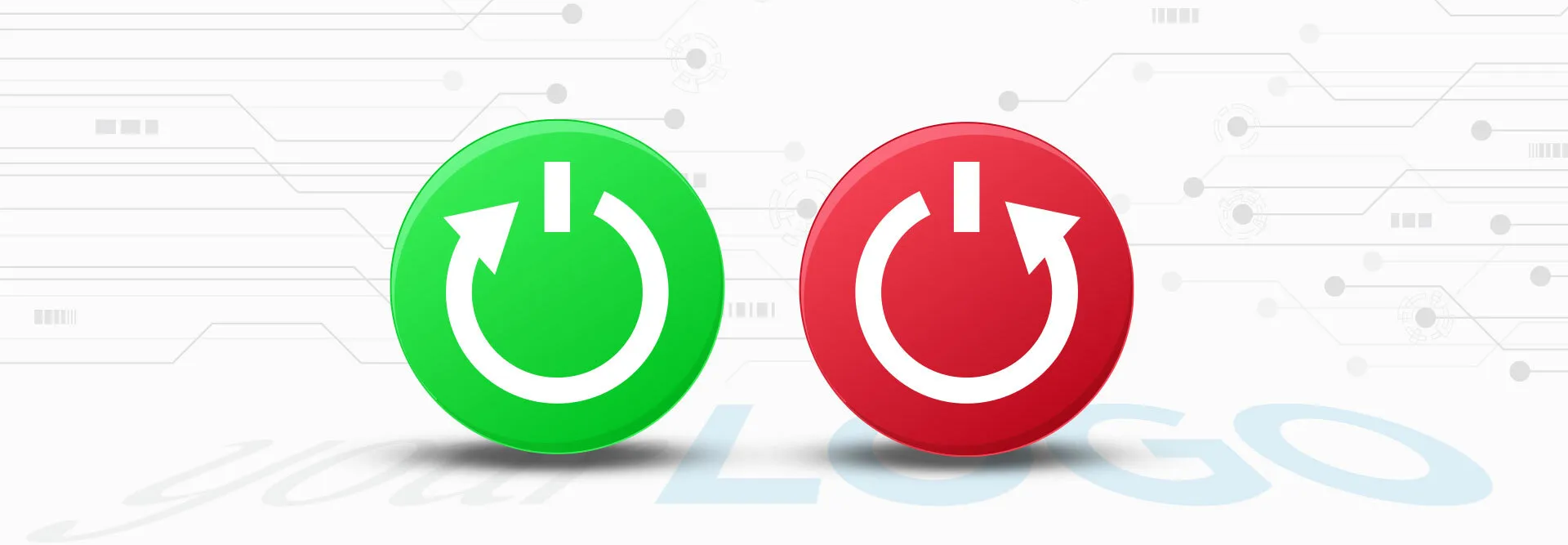As a reseller of a white-label software partner program, you can take advantage of some of the top tech and expertise in the world to grow your business without the risk and challenges of developing software in house.
Whether you’re just thinking about reselling software or you’ve already started, these tips will help you get the most out of your white label software partner program. As a result, you will be able to reliably grow your bottom line while ensuring your clients are happy (and have no reason to explore the competition).
Scale faster with one platform built for client acquisition and engagement
What is white-label software reselling?
White-label software resellers buy software at a discounted rate from third-party vendors and sell a rebranded version of it to their clients. Often, resellers only pay when they secure a sale from their client, eliminating the risk associated with having to purchase software upfront.
Additionally, white-label vendors can provide service and support under the reseller’s brand name. This limits the need for in-house expertise, so that focus can be placed on client acquisition and retention.
As favorable as a white-label software partner program can be for digital agencies, media companies, MSPs, and more, there are things resellers can do to increase their chances of success.
Here are five things to do and five to avoid if you want to get the most of white-label reselling in your business.
5 things to do when you join a white-label software partner program
White-label reselling takes a lot off your plate so that you can focus on your clients, but that doesn’t mean you don’t have to remain active in your business. Make sure you do these 5 things when you join a white-label software partner program.
1. Train your sales teams
You’ve just selected a range of different software products from a cloud marketplace to resell, and now it’s time to send your sales team off and watch the revenue stream in, right?
Not exactly. Make sure you take the time to adequately train your sales team on every new solution, so that they are equipped to speak about it and explain its benefits to your prospects.
Rather than adding a ton of services at once, consider adding a manageable amount and then augmenting your offering as your sales team learns how to sell each new software product. The best white-label software marketplaces will provide product guidance and support.
2. Bundle your services
One of the perks of joining a white-label software partner program is that you can offer a wide range of products and services even if your team is lean.
Bundling your products makes it possible to increase your average order value and the value of each client. For example, if you sell web design services, bundling these with white-label app development can appeal to clients who want to offer more ways for clients to interact with their business.
They may not have considered getting an app built before, but if it’s in an attractively priced bundle, it becomes more appealing.
3. Personalize your pitch
Instead of having your sales team pitch every single software you resell to each client, tailor your pitches to their needs.
Using a sales intelligence tool can help you identify the areas in which a prospect is lagging the most so that solutions that are most relevant to their needs can be prioritized.
4. Integrate your core offerings with white-label offerings
By using a white-label marketplace that enables you to build your own store, you can create a professional interface where prospects and existing clients can browse your digital products and services.
Make sure you add your existing in-house services into your store so that your whole portfolio is seamlessly integrated from the perspective of clients.
5. Build a culture of customer service
Joining a white-label software partner program enables you to leave a great deal of fulfillment to expert third parties.
However, everyone in your organization should consider customer service a part of their job. Even if they ultimately connect with support from a white-label vendor to solve a problem, customer service should be considered an internal responsibility.
5 things to avoid when you join a white-label software partner program
These common mistakes lead white-label software resellers to sell themselves short when it comes to the success they can potentially have. Avoid these pitfalls in your own business.
1. Thinking white-label means hands off
While joining a white-label software partner program can free up time that would have otherwise been spent building products and delivering on them, that doesn’t mean you can sit back and expect everything to be done for you while passive profits are generated.
The most successful resellers take the time and resources freed up by white labeling to refocus on building their pipelines, selling, and providing excellent customer service to their clients to prevent churn.
2. Using providers with poor brand consistency
If the marketplace you use to find reseller software doesn’t create a cohesive brand experience from one software or app to the next, the result can look sloppy and unprofessional. While you may be using products from many vendors, the white label aspect should mean that your clients get a cohesive brand experience.
3. Choosing your vendors solely based on price
While it’s understandable to want to maximize your profits on each sale, going with the cheapest vendors without properly vetting them and their software can hurt your business in the long run.
Firstly, it can damage your reputation. Remember that to your clients, all of the different solutions they purchase from you are a reflection of your business. It’s unlikely that they’ll come to you again after a bad experience.
Secondly, if a digital solution only makes life harder for your clients, they simply aren’t going to stick around for very long. Clients worth having, who will be loyal for the long term, likely won’t make decisions solely based on price. Quality and reliability are extremely important.
4. Forgetting about your brand
With all the excitement that comes from expanding your portfolio of services, it can be easy to neglect your brand. However, other competitors may also be offering similar reseller software and services, and a strong brand can help differentiate you in these situations.
So, how can you develop your brand as a white-label software reseller? Having a branded online store for your services helps. Investing some time or money into creating in-house marketing resources and documentation for clients can also help cement in their minds the fact that your business is a valuable resource.
Finally, if you have a niche or specialty, stay connected to it. For example, if your clients are primarily law firms, focusing your efforts on acquiring more clients in the same niche can help you retain your identity and brand reputation.
5. Selling one-size-fits-all solutions
As a white-label software reseller, you have the flexibility to offer customizations and add-ons for your clients without much effort. Selling standard packages that don’t give clients any choice to personalize what they purchase is a missed opportunity.
Clients today value a personalized approach. Enabling them to feel in control of their purchases with customized options is a great way to deliver on this value.
Maximize the opportunity of a white-label software partner program
Joining a white-label software partner program can be an incredible opportunity for your business, enabling you to grow your client list and revenue without great risk or expense.
With our do’s and don’ts, you can make the most of the opportunity, and deliver your customers an experience that can’t be beaten.
[adrotate banner=”258″]
White-label software partner program FAQs
1. What is a white-label software partner program?
A white-label software partner program lets your business resell rebranded software without developing it yourself. You manage the client relationship while the vendor handles the tech. Programs like Vendasta offer marketplaces, fulfillment, and support so you can scale faster.
2. How does white-label reselling help agencies grow?
It expands your service catalog instantly. Instead of hiring specialists or building tools, you resell ready-made solutions under your brand. That means faster launches, higher margins, and more recurring revenue—especially when paired with strong onboarding and client support.
3. Do I need technical expertise to join a white-label program?
No. Most providers handle the heavy lifting. Your focus is sales, customer service, and account retention. Solutions like Vendasta include training and white-label support so you can offer advanced digital products without adding technical staff.
4. How do I choose the right white-label vendor?
Look at product quality, support, brand consistency, margins, and the size of the marketplace. A good partner should offer proven software, transparent pricing, and resources that help your team sell. Avoid choosing solely based on price.
5. What services can I resell through a white-label platform?
Common options include websites, SEO, listings, reputation management, social media tools, ecommerce solutions, and paid advertising. With platforms like Vendasta, you can bundle dozens of services and build a full digital suite for clients.
6. How do I price my white-label software packages?
Start with value, not cost. Consider your audience, the outcomes you deliver, and the level of service required. Bundles often drive the highest average order value and improve retention because clients love all-in-one solutions tailored to their needs.
7. Why is branding important in white-label reselling?
Your clients see every product they buy as part of your business. If the experience feels inconsistent, trust drops. A strong brand, unified interface, and consistent messaging help you stand out—especially when multiple competitors sell similar solutions.
8. What mistakes should resellers avoid when starting out?
Common pitfalls include selling too many products at once, neglecting training, choosing low-quality vendors, and taking a hands-off approach. Successful resellers stay proactive: selling, educating clients, reviewing performance, and refining their offers.
9. How can I personalize software packages for different clients?
Use discovery conversations and sales intelligence tools to identify gaps in their digital presence, then build custom bundles. Tailored options—rather than one-size-fits-all packages—boost conversions and make clients feel supported in a more meaningful way.
10. How does Vendasta support white-label software partners?
Vendasta gives resellers a full white-label ecosystem: CRM, client reporting, fulfillment teams, 250+ rebrandable solutions, and a storefront you can customize. It’s built to help partners scale quickly, keep clients longer, and grow recurring revenue with less overhead.


